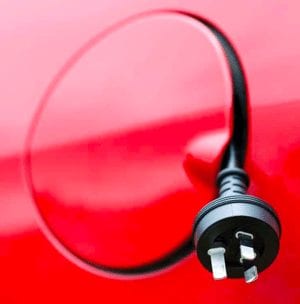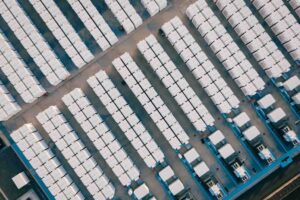A new report from leading utilities analysts at investment bank UBS suggests that energy utilities in Europe, north America and Australia are facing a “perfect storm” from the falling costs of renewables, energy efficiency and falling demand, and may not be able to sustain their business models.
The report – entitled “Can utilities survive in their current form?” – is the latest in a series of assessments, reviews and analysis that point to the severe disruption to the centralized generation model, and the demand and supply dynamics that have governed the industry for the past few decades. To briefly summarise the UBS response to its own question, the answer is No.
UBS says the biggest impact on the current utility model will occur in developed markets, where renewables in general and distributed solar in particular will take more of an already depleted “demand pie.”
This, says UBS, will cause profits to fall and could force utilities, particularly generators, to look at greater exposure to renewables and distributed generation, and to other downstream services. It comes to a similar conclusion on this as the CSIRO Future Grid forum, and echoes some of the strategic decisions currently being mooted German energy giants RWE and E.ON.
“We expect the renewables onslaught to continue and that the going will only get tougher for conventional generators,” the UBS analysts write. “We believe the will need to examine and change their traditional business models to survive the renewables era.”
These new business models could include a greater focus on rooftop solar, energy efficiency, and consumer offerings that combined solar, storage, and electric vehicle infrastructure, as well as energy-efficient appliances.
UBS says the economic for solar panels looks set to work best in Australia, the southwest US, Germany, Italy and, with a time lag, in Spain.
It notes that the combination of decreasing costs of solar and rising electricity bills means that “end-user” grid parity has been achieved in several key European markets, and in Australia and the south-west of US.
This means that consumers can reduce the cost of their bills by more than the cost of the solar system – and rooftop solar systems are having the added impact of pushing thermal generation down the merit order, as Stanwell Corp has testified in Queensland.
“As unsubsidised solar replaces conventional generation … in Europe, the US and Australia by shaving off the peak demand, it has started to reduce pool electricity prices,” UBS notes. And utilisation rates will also fall. This would lead to a 50 per cent fall in profits from conventional utilities in Europe by 2020, based on current deployment forecasts.
UBS says the prices will fall so low that capacity will have to be removed to allow prices to recover. However, that capacity may be superseded anyway by the emergence of storage, potentially another blow to conventional generation.
Interestingly, UBS conducted a survey of 65 utility companies in Europe, Asia, America, Australia and Brazil – and the biggest number of utilities who viewed renewables as a threat where conventional generators in developed markets.
More than 50% of generators thought this way, compared to less than 5% in emerging markets. The percentages were virtually reversed when asked about the opportunity for renewables.
Must be something about sunk investments. Indeed, most developed market generators said renewables would lower their profits, while in emerging markets they thought renewables would increase their profits. UBS noted that the problems for conventional generators in developed markets would likely increase, given that penetration rates are still relatively low.
In Germany, however, households are expected to generate 29 per cent of their needs from rooftop solar by 2020, and commercial businesses up to 18 per cent. In Italy and Spain, commercial businesses are expected to generate more than one quarter of their own electricity requirements.










